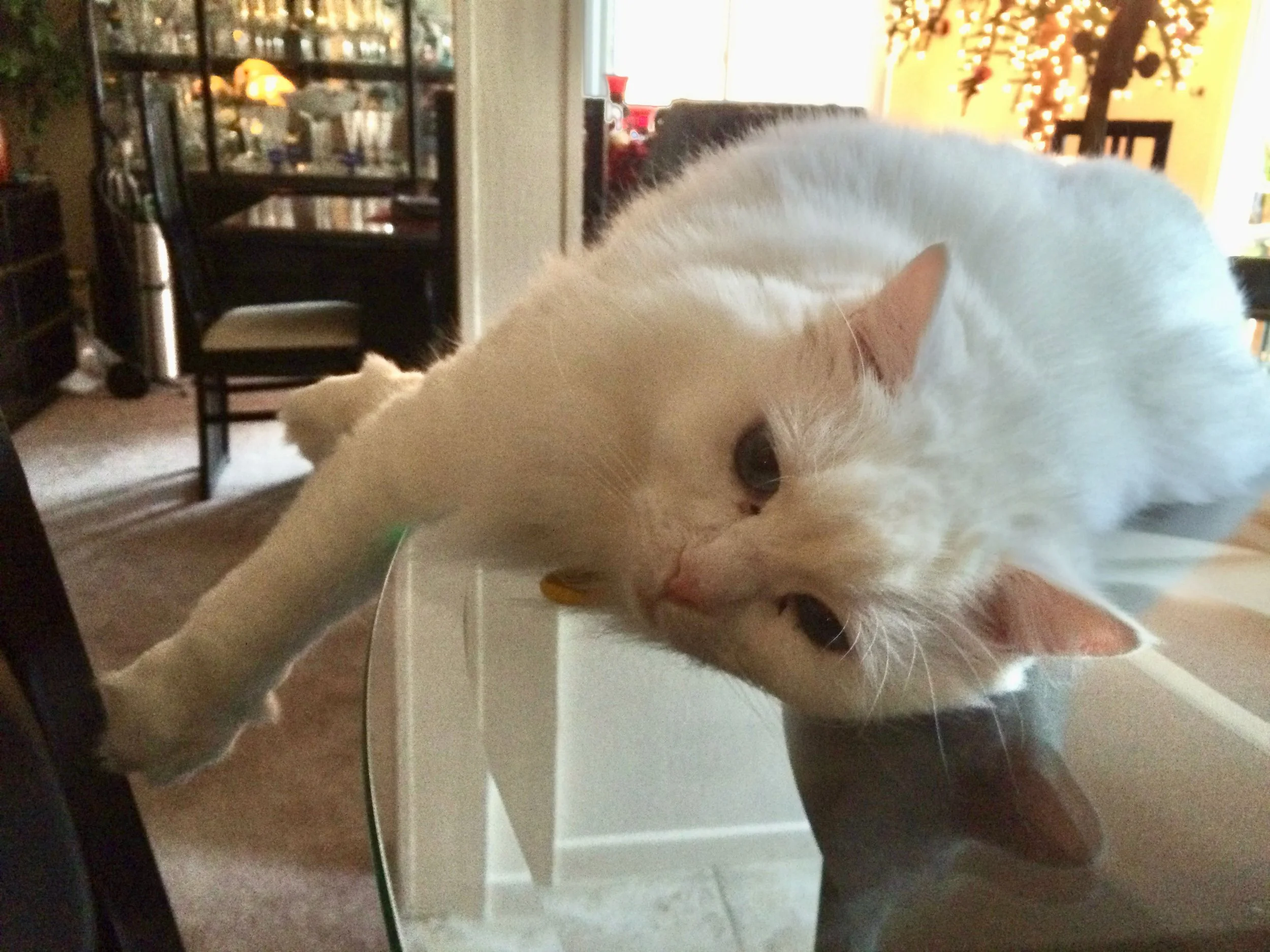When a pet parent’s furry or feathered child is having a medical emergency, only one thing matters: getting immediate veterinary care.
But it’s more than top tier, hands-on skills that are needed.
Sam was a snow white rag doll who my Mama Glo cared for ever since his first mom, my Aunt Evie, fell into decline years ago. Mama Glo doted on Sam and he on her.
Ice was his favorite treat. With a creek of the freezer door, Sam darted from parts unknown to lick a cube’s frosty edges. After dad died four years ago, Sam ritually wrapped his paws around Glo’s neck and kissed her tear-stained cheeks.
Two weeks ago, Sam became listless. He stopped eating. He no longer charged into the kitchen when the freezer door opened. Sam needed attention. Fast.
It was a Sunday. Local vets in Fallbrook, California, were closed. The closest pet emergency room was almost an hour away. My sister, Diane, and Mama Glo piled into their car with Sam, swaddled in his favorite blanket. Panic raced through their minds. What was happening to Sam? Could his condition be reversed?
Veterinary Emergency Group in Encinitas was a flurry of activity when my family burst through the doors cradling Sam. Masked technicians and doctors rushed between the lobby, lab, imaging and examining rooms bursting with sick fur kids and their parents. It was as if the world descended upon this hospital all at once.
The clinic was short-staffed. Remarkably, the skeleton crew triaged Sam within a few minutes. He might have a urinary blockage. Could be something else. Expensive labs were required to diagnose Sam. Of course. Sam is family.
No exam rooms were open, so Mama Glo and Diane camped out in a hallway waiting for news. Every few minutes, a clerk, technician or doctor checked in with them. Staff knelt down to speak eye-to-eye with my family or offer them coffee or water. Thank you for your patience, they said; we have many urgent cases today. My family was deeply touched by these simple gestures.
The news was not good. Sam had full-blown kidney failure. Other organs would soon follow. Mama Glo and Diane were devastated. The doctor and tech ushered my family into a newly-opened private room where Sam waited, his life slipping away. Take your time, they said; the whole day, if you need. We’re here for you when you decide it’s time. Within the hour, Sam was humanely euthanized, his family and veterinary staff by his side.
My family was grateful to have received such compassionate care. Other pet parents may not be as fortunate.
Tensions run high, even within the most efficiently-run veterinary clinic or hospital. For some, the pace is unrelenting from the second they clock-in to the moment they slump behind the wheel of their car at day’s end. Steeled nerves can fray resulting in offhand remarks, careless asides or abrupt exits after delivering jaw-dropping news. Unprofessional, but sometimes real.
There is help for the helpers. In addition to providing individual and group grief sessions for bereaved pet parents, Pet Loss Partners addresses compassion fatigue and self-care strategies for veterinary practitioners as well as communication tips for support staff interacting with grieving individuals and families.
Pet parents who’ve been treated rudely or callously are entitled to confront practitioners with direct and specific complaints regarding their care (or lack thereof). Feedback may be graciously received — or not. It doesn’t matter.
Tonight, I raise my glass of ice water to Sam, my family and Veterinary Emergency Group in Encinitas, a paragon of good care who’s hands — and hearts — are in the right place.

